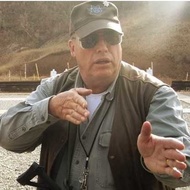19 July 12
“Man plans, and God laughs”
In the last of his radio “Fireside Chats” of 1940, FDR coined a new phrase, “Arsenal of Democracy,” to describe the hysterical domestic military build-up, then going forward at a frenzied pace. War-fever had caught on!
Hitler’s precipitous invasion of Poland a year earlier, and his U-Boats threatening England with starvation, had well-served to garner the attention of the American public. Curiously, at the same time, few Americans knew of, nor cared about, Japan’s concurrent brutal invasion of China and French Indochina.
Still smarting from an inconclusive WW1, there had heretofore been scant enthusiasm among Americans for entering yet another European war. Now, the tide of public opinion was turning!
Private manufacturers, so confident of eventual US participation in the War in Europe, ramped-up production, building plants and hiring workers, not even waiting for Congress to approve contracts. What the US Army and Navy didn’t consume, Britain, France, Greece, and Russia surely would. The draft was re-instituted. Burgeoning Army and Marine posts and training centers re-invigorated countless heretofore failing local economies, immediately enfranchising restaurants, bars, hotels, and brothels. Overnight, unemployment dropped into single digits. The Great Depression ended almost instantly!
For FDR and his party, this was all good news. Where the ill-conceived “New Deal” had altogether failed, both to ameliorate the Great Depression in the slightest (then entering its second decade), nor to lift the public mood, the Winds of War were succeeding… in spades!
Still, a significant catalyst would be required to nudge America into open participation in this new War. That spark was virtually guaranteed when, in 1941, FDR cut-off all exports of metals and oil to expansionist Japan, simultaneously moving the US Pacific Fleet from San Diego, west to Pearl Harbor, Hawaii. Imperial Japan now considered a precipitous attack on the US to be little more than self-defense, and the Japanese Navy, under a daring and offense-oriented Admiral Yamamoto, long spoiling for a shot at the US Pacific Fleet, finally brushed-aside Army objections, and got its way!
However, Japan’s surprise attack on Pearl Harbor on 7 Dec 1941 (Sun) failed to sink, nor even damage, a single American aircraft carrier, as none were in port at the time. It also failed to destroy land-based fuel tanks, a costly omission that insured the port would be back up and running within weeks. Thus, Yamamoto’s goal of paralyzing America’s naval capabilities in the Pacific for at least a year, failed just about completely.
What Japan’s Pearl Harbor attack was most significantly successful in doing was all-inclusively enraging the American public and ensuring America’s immediate and enthusiastic entry into the War, as it turns out, just in the nick of time to virtually guarantee, within the following four years, both Germany’s and Japan’s ignominious defeat!
Had Yamamoto known no American Carriers would be in Pearl Harbor that day, he would have indisputably called off the entire Operation!
And, had America not decisively entered the War at the end of 1941, world history would have taken an entirely different turn. Germany would likely have developed its own atomic bomb before America did. There would likely have been no D-Day Invasion, and, if so, the Holocaust would be a secret, known by only a few, even today. And, in Australia, they might all be speaking Japanese!
If I were slightly less cynical, I might even entertain the notion of Divine Providence. If there is such a thing, let us pray fervently that it is still at work today!
The Lambda ^
In ancient times, each warrior was known by the personal design on his shield. During close-quarter fighting, it became virtually impossible to know friend from foe without an intimate knowledge of your ally’s shield designs.
All shields carried by Spartan Hopolites bore the Greek symbol Lambda (^) or “L,” which stood for Laconia, the area in southern Greece where, in the Tenth Century BC, the Spartans settled after
defeating the local populace, and ultimately founded the city/state of Sparta.
Derived from the Semitic letter “Lamedh” (ox-goad), lambda is the eleventh letter in the Hellenic Alphabet, and the basis for our letter “L.” Originally a picture-symbol for scales, the letter gradually took on the meaning of “balance.”
Ancient Lacedaemonians (Spartans) painted upper-cased Lambdas on their shields, symbolizing not only their unity but also their belief that the demands of the state must never interfere with freedom and independence of the individual citizen.
It is the upper-cased lambda ( ^ ) that is painted as chevrons on our armored vehicles today, representing the warrior who balances duty with personal honor and freedom.
Let us never forget that we currently bear all of Western Heritage, so nobly earned in 480 BC
at the pass of Thermopylae by King Leonidas and his personal bodyguard of three-hundred Spartan Equals.
… yet another “unlikely” accident of history!
/John


